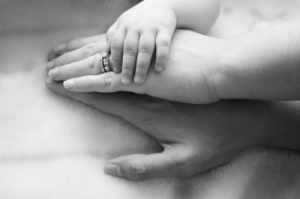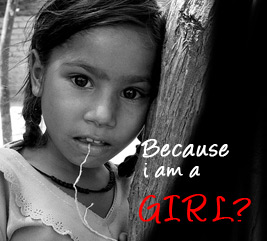by Shaula Bellour (Indonesia) | Apr 27, 2012 | Health, Indonesia, Living Abroad, Motherhood, Shaula Bellour, Shot@Life, World Motherhood
 A few weeks ago we had a rough day at the doctor’s office. Our twin four-year-olds needed a routine medical check up to apply for school next year so we set up an appointment at the nearby international health clinic. To ensure that I’d leave with filled-in forms – and given my son’s tendency toward noncompliance in medical settings – I spent a few days preparing them for the big event.
A few weeks ago we had a rough day at the doctor’s office. Our twin four-year-olds needed a routine medical check up to apply for school next year so we set up an appointment at the nearby international health clinic. To ensure that I’d leave with filled-in forms – and given my son’s tendency toward noncompliance in medical settings – I spent a few days preparing them for the big event.
We talked a lot about what would happen at the appointment and why it was important. I also banked on a bribery strategy and took the kids to the toy store the day before to pick out craft activities that we would do together after a successful check up.
The exam began and both kids were doing great and cheering each other on: “you’re doing a good job!” said one to the other. Then it was time for the required Mantoux TB skin test – an injection of Tuberculin beneath the skin on the inside of the left forearm.
My daughter cheerfully agreed to go first. Her smile quickly gave way to a frozen look of shock and then (more…)
Shaula Bellour grew up in Redmond, Washington. She now lives in Jakarta, Indonesia with her British husband and 9-year old boy/girl twins. She has degrees in International Relations and Gender and Development and works as a consultant for the UN and non-governmental organizations.
Shaula has lived and worked in the US, France, England, Kenya, Eritrea, Kosovo, Lebanon and Timor-Leste. She began writing for World Moms Network in 2010. She plans to eventually find her way back to the Pacific Northwest one day, but until then she’s enjoying living in the big wide world with her family.
More Posts
by Madpsychmum (Singapore) | Apr 26, 2012 | Childhood, Language, Singapore
 I was watching Disney’s Tarzan with my baby girl one day and it reminded me of this case study that I had read in one of my psychology textbooks when I was studying as an undergraduate.
I was watching Disney’s Tarzan with my baby girl one day and it reminded me of this case study that I had read in one of my psychology textbooks when I was studying as an undergraduate.
The town folks at Aveyron discovered a young boy about the age of 12 years old wandering around naked. Covered with scars all over his body, his behaviour was like that of an animal and he was not able to speak. It is estimated that he might have lived in the wild since 4 years old after his parents abandoned him. His sudden appearance then gave researchers at that time a golden chance to study him and find out once and for all whether we are products of nature or nurture.
One of those who studied him was Dr. Jean-Marc Gaspard Itard, who was determined to teach the Wild Boy of Aveyron (as he was called) how to speak and communicate socially with others.
Despite his best efforts, the boy never managed to communicate or speak except for a handful of words even after 5 years of training. It was believed that either he was autistic or that he simply missed the (more…)
Madeline lives in Singapore, a tiny cosmopolitan island in Southeast Asia. She is a mother to a beautiful and intelligent little girl born in July 2010.
Madeline used to be a stay-at-home mother while she was completing her graduate studies in psychology at a local university. On completion of her studies, she has now joined the workforce and is working in the Ministry of Education (Singapore).
Madeline is passionate about children and education and hopes to make a difference in the lives of children living in Singapore. Also an avid traveller and hardcore advocate of breastfeeding, she regularly documents her overseas trips and nursing room reviews with incredible detail on her blog, MadPsychMum @ University of Motherhood.
More Posts
by Melanie Oda (Japan) | Apr 24, 2012 | Eye on Culture, Holiday, Humor, Japan, Life Lesson, Motherhood, Parenting, World Motherhood
 I had really hoped this year would be the year.
I had really hoped this year would be the year.
The year I could put the Hina Matsuri (Girls’ Day) dolls out in the living room where we could enjoy them. It’s such a nice tradition: displaying beautifully intricate (and sickeningly expensive) dolls in traditional seven-layered kimonos for the weeks leading up to Girls’ Day on March 3rd, when the whole family pauses to pray for the health and well-being of daughters before feasting on feminine, cutesy foods, like tiny sushi and soup with delicate candy colored balls, followed by pink and green omochi (sticky, sweet rice cakes) for desert. Ladies magazines are full of hina (imperial princess) themed recipes. This year I think we’ll try the “parfait sushi,” which is sushi rice layered with eggs and other colorful ingredients in a glass so it looks like a parfait. I’m also thinking of ordering a Hina Matsuri themed ice cream cake from Baskin Robbins (known here as 31 Ice.)
Of course, the best laid plans of mice and moms often go awry. Or something like that. (more…)
If you ask Melanie Oda where she is from, she will answer "Georgia." (Unless you ask her in Japanese. Then she will say "America.") It sounds nice, and it's a one-word answer, which is what most people expect. The truth is more complex. She moved around several small towns in the south growing up. Such is life when your father is a Southern Baptist preacher of the hellfire and brimstone variety.
She came to Japan in 2000 as an assistant language teacher, and has never managed to leave. She currently resides in Yokohama, on the outskirts of Tokyo (but please don't tell anyone she described it that way! Citizens of Yokohama have a lot of pride). No one is more surprised to find her here, married to a Japanese man and with two bilingual children (aged four and seven), than herself. And possibly her mother.
You can read more about her misadventures in Asia on her blog, HamakkoMommy.
More Posts
by Ruth | Apr 20, 2012 | Culture, Eye on Culture, Family, Motherhood, Parent Care, Parenting, Ruth Wong, Singapore, World Motherhood
 Have you ever thought about why you’re having kids?
Have you ever thought about why you’re having kids?
Some have kids because they think it’s part of the “marriage progression”, they want to carry on their bloodline or because everyone around them are having children.
Others feel that they want to leave a legacy through their offspring. Then there are those who do it simply because they have a strong desire to have children.
In Asia, it’s not uncommon for people to want to have children to ensure that there’s someone to look after them when they turn old. In fact, there’s even a Chinese idiom 养儿防老 – which translates to mean “raise children to safeguard your old age”.
Indeed, in Asian societies that have been strongly influenced by Confucius teachings, such as China, Japan, Korea and Singapore, the practice of filial piety is still seen as an important social value and esteemed as virtue to be inculcated in one’s children from a very young age.
Children are not only expected to respect and obey their parents, it’s also deemed their duty to look after their parents in old age. (more…)

Ruth lives in Singapore, a tiny island 137 kilometres north of the equator. After graduating from university, she worked as a medical social worker for a few years before making a switch to HR and worked in various industries such as retail, banking and manufacturing. In spite of the invaluable skills and experiences she had gained during those years, she never felt truly happy or satisfied. It was only when she embarked on a journey to rediscover her strengths and passion that this part of her life was transformed. Today, Ruth is living her dreams as a writer. Ironically, she loves what she does so much that at one point, she even thought that becoming a mom would hinder her career. Thanks to her husband’s gentle persuasions, she now realises what joy she would have missed out had she not changed her mind. She is now a happy WAHM. Ruth launched MomME Circle, a resource site to support and inspire moms to create a life and business they love. She has a personal blog Mommy Café where she writes about her son's growing up and shares her interests such as food and photography.
More Posts
by Asha (Nigeria) | Apr 19, 2012 | Childhood, Culture, Family, Humor, Husband, India, Motherhood, Nigeria, USA, World Motherhood
 At first glance, I appear to be a typical Indian-American woman. My parents immigrated to the U.S. in the 1970’s. My father is a physician. My mother holds strong opinions on the merits of silk versus French chiffon saris.Until recently, I lived in New Jersey, and really, what Indian-American doesn’t? My investment banker husband and I have 3 children who attended Hindi class every Friday night for years.
At first glance, I appear to be a typical Indian-American woman. My parents immigrated to the U.S. in the 1970’s. My father is a physician. My mother holds strong opinions on the merits of silk versus French chiffon saris.Until recently, I lived in New Jersey, and really, what Indian-American doesn’t? My investment banker husband and I have 3 children who attended Hindi class every Friday night for years.
You should know, however, that there are aspects of my life that Indians frown upon.
The aforementioned husband is Nigerian, a people distrusted in this era of 419 scams by Indians and non-Indians alike. And even more damning to a subcontinent that fetishizes degrees, I walked out of a top law school after a week and never looked back.
Upon closer examination, I am NOT a typical Indian-American. From the standpoint of most Indians, truth be told, I am a dud. (more…)

by Purnima Ramakrishnan | Apr 6, 2012 | 2012, Child Care, Childhood, Culture, Human Rights, Humanity, India, International, Life Balance, Social Good, The Advocates of Human Rights, The Alchemist, Women's Rights, World Voice
I am a woman and I am writing from India. So, what is special about that, you may ask.

Save the girl child of India
The United Nations Department of Economic and Social Affairs (UN-DESA), has now officially declared that India is the most dangerous place for a girl child to be.
India is the country that gave the world the second woman prime minister (Indira Gandhi in 1966). India has sent its women to space; its women have marked their places in sports, the corporate world, Hollywood and just about everywhere else, too.
But I will not bore you with statistics and data that you can check out on your own here, here and here. The point of my post is to bring to light the reasons behind this statement. First, there are some sociocultural pieces I would like to highlight.
- In India, a girl is ‘married off’ and sent away to live with her husband and in-laws. It is called the joint-family system (couple, children, husband’s parents, sometimes even the husband’s brother’s family in some cases) opposed to the nuclear family system (more…)
 A few weeks ago we had a rough day at the doctor’s office. Our twin four-year-olds needed a routine medical check up to apply for school next year so we set up an appointment at the nearby international health clinic. To ensure that I’d leave with filled-in forms – and given my son’s tendency toward noncompliance in medical settings – I spent a few days preparing them for the big event.
A few weeks ago we had a rough day at the doctor’s office. Our twin four-year-olds needed a routine medical check up to apply for school next year so we set up an appointment at the nearby international health clinic. To ensure that I’d leave with filled-in forms – and given my son’s tendency toward noncompliance in medical settings – I spent a few days preparing them for the big event.














